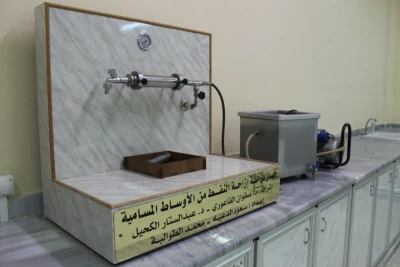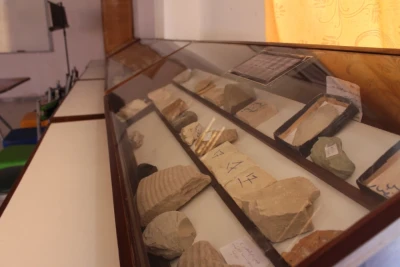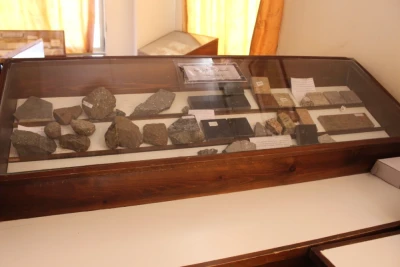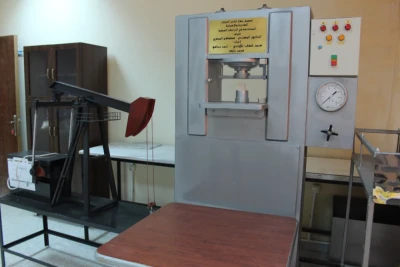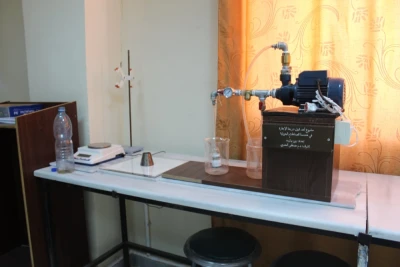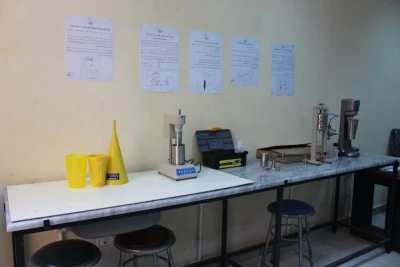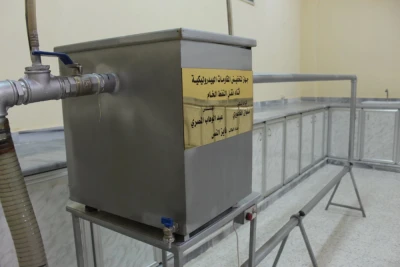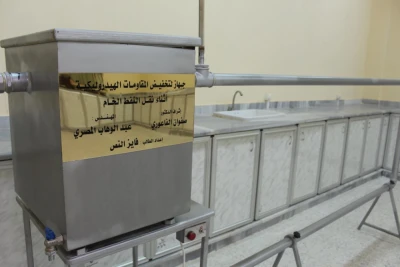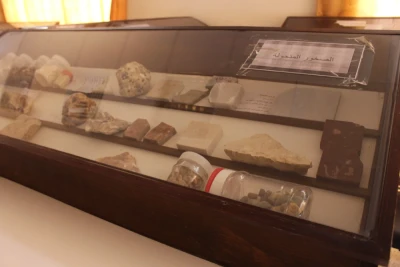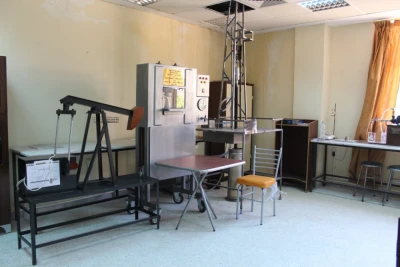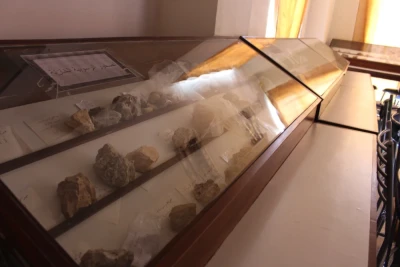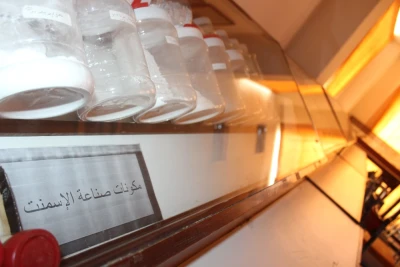الهندسة البترولية
Laboratory of Drilling Engineering and Drilling Fluids
Description:
The laboratory contains a group of laboratory devices through which the basic specifications of the drilling fluid can be measured (Viscosity - Density - Filtration - Sand content etc), it also contains a group of locally manufactured in laboratory devices that are useful in the field of scientific research in the specialty of drilling engineering, addition to a device that simulates a rotary drilling rig for oil and gas wells, through which students are introduced to the components of the drilling rig and the mechanism of the rotary drilling operation is explained.
Equipments:
- A device for measuring the density of drilling fluid.
- Fann device for measuring the plastic viscosity of drilling fluid.
- Marsh Funnel for measuring the relative viscosity of drilling fluid.
- A device for measuring the filtration of drilling fluid.
- A device for measuring the sand content in drilling fluid.
- Sensitive electronic balance with an accuracy of 0.01 gr.
- A group of materials using in preparing of drilling fluids.
- A locally manufactured Hydraulic Piston for determine the strength of rock sample and cement stone samples which using in cementing of wells
- A locally manufactured Desander for evaluate the efficiency of cleaning drilling fluid from sand grains resulting from drilling.
- A locally manufactured laboratory device for study of Hydrate formation in drilling fluid.
- A locally manufactured laboratory device for study of the mutual influence between drilling fluid and clay rocks.
- A locally manufactured laboratory device for study of osmosis and reverse osmosis during the drilling operation of oil and gas wells.
- A locally manufactured funnel device for determine the degree of fluidity of cement mixture.
- A device that simulates a rotary drilling rig for oil and gas wells, through which the components of the rotary drilling rig are introduced.
Courses:
- Drilling Engineering
- Drilling Fluids
- Drilling and Production Equipment
- Offshore drilling
- Directional Drilling
- Maintenance and Repair of Wells.
Laboratory of Reservoir Engineering & Production and Transportation of Oil and Gas
Description:
The Reservoir, Production, and Transportation Engineering laboratory is concerned with studying the physical properties of oil and gas reservoir rocks, the physical properties of hydrocarbon compounds and associated water, and oil displacement processes in porous formation, in addition to treating the produced oil and gas and improving the behavior of the oil with the aim of reducing hydraulic resistances during oil transportation, the laboratory also contains devices that simulate the process oil production through pumping unit and the natural gas treating operations through a horizontal gas separator device, as well as a device that simulates the injecting process of chemical solutions as one of the enhanced oil recovery methods to increase the oil recovery factor.
Equipments:
- A locally manufactured laboratory displacement device for studying oil displacement processes porous formation and the injecting process of chemical solutions to increase the oil recovery factor.
- A locally manufactured device which simulate a horizontal gas separator, and this device serves to identify the mechanism of separating solid and liquid impurities from natural gas.
- A device for improving the behavior of the flow of crude oil in transportation pipelines, it is manufactured locally and is useful in conducting laboratory experiments in order to reduce hydraulic resistances during the flow.
- A device simulates a pumping unit which using in the mechanical production of oil, and this device serves to identify all parts of pumping unit.
- A locally manufactured device e simulates the injecting process of 1 chemical solutions for increase the oil recovery factor.
- Drawings show the methods of enhanced oil recovery.
Courses:
- Reservoir Engineering /1/
- Reservoir Engineering /2/
- Oil Production Engineering
- Gas Production Engineering
- Oil transportation and storage.
- Gas transportation and storage.
- Enhanced oil Recovery.
- physics of Oil Formation.
- Subterranean Fluid hydraulics.
- Fluid flow
Laboratory of Geology and Oil Exploration
Description:
A geology laboratory contains a number of rocks and metals that need to be recognized and studied by students with the aim of knowing the types of metals, crystals, and crystalline systems, as well as studying the physical and chemical properties of these rocks and minerals, and identifying the origin of igneous and sedimentary rocks and their types, which enables the petroleum engineer to deal with rock formations during the drilling wells and production of oil and gas from it.
Equipments:
- Mineral samples of various types of rocks which are identified directly by examining them and distinguishing them from each other through studying the physical properties such as color, fracture, taste, hardness, transparency, luster, magnetic and crystalline properties, scratching, .. etc.
- Slices of typical samples of rocks whose structure is identified by microscope in the laboratory..
- Attention is paid to studying in terms permeability and porosity due to their possibility of containing hydrocarbons, in addition to studying clay and salt rocks that form impermeable cap rocks for petroleum reservoir and traps.
Courses:
- General Geology.
- Rocks and Metals.
- Structural geology.
- Petrol geology.
- Hydrogeology.
- Geochemistry of oil and gas.
